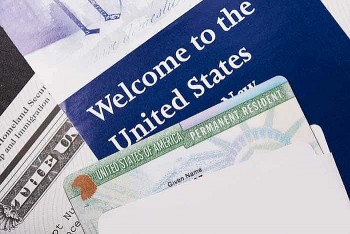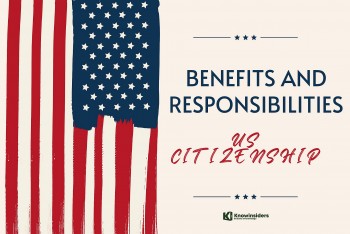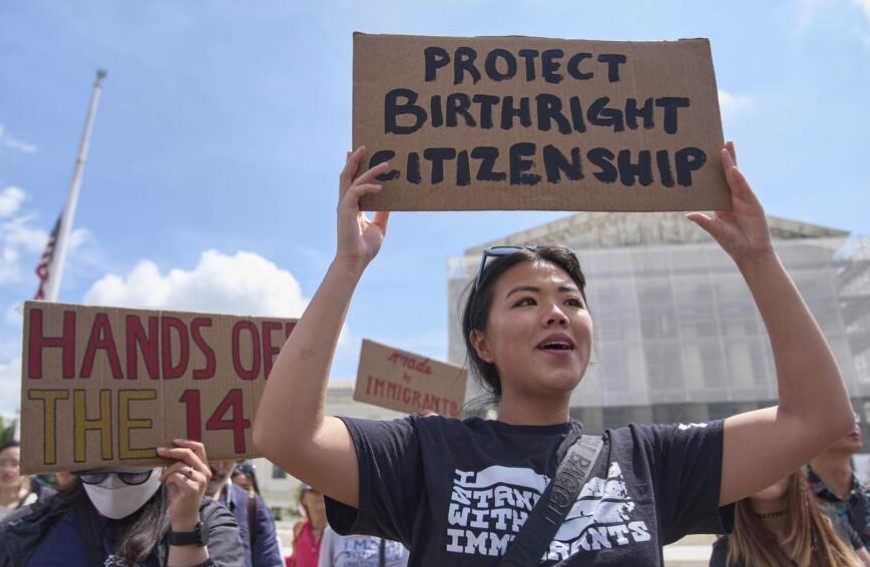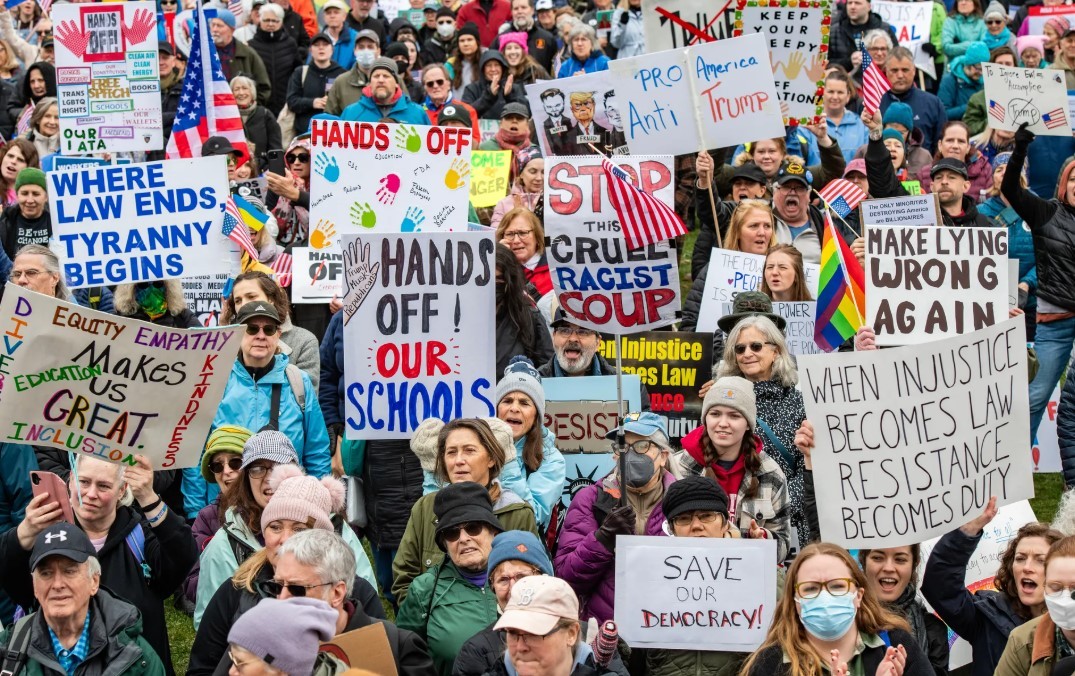Which American Citizens Could Be Deported Under Trump’s Orders?
 US Citizenship: Top 100+ Test Questions and Best Answers US Citizenship: Top 100+ Test Questions and Best Answers |
Donald Trump says U.S. citizens would be included in his mass deportation plan. This article explores the groups of citizens that could be affected, the legality of such actions, and the broader implications for American families and society.
 |
| Trump Vows to Deport U.S. Citizens in New Immigration Policy |
Trump’s Controversial Plan: Deporting U.S. Citizens as “Collateral Damage”
In a recent interview on Meet the Press with Kristen Welker on Sunday, December 8, 2024, President-elect Donald Trump reignited controversy by reiterating his plan to deport U.S. citizens as part of his sweeping immigration strategy. Trump described these deportations as "collateral" in his effort to expel undocumented immigrants, signaling a renewed focus on mixed-status families.
Trump’s Rationale: Avoiding Family Separation
During the interview, Trump acknowledged the backlash his first administration faced over family separation at the U.S.-Mexico border. He argued that keeping families together during deportations was a priority, even if it meant U.S. citizens would be forced to leave alongside their undocumented family members.
“I don’t want to repeat the mistakes of the past,” Trump said. “If a family includes undocumented individuals, we’re keeping them together. But to do that, they all need to leave the country—citizens or not.”
Trump’s remarks suggest that the policy would apply broadly to families with mixed immigration statuses, which include U.S.-born children or spouses with legal status. By treating family unity as a cornerstone of his immigration enforcement, Trump has raised serious questions about the rights of U.S. citizens in such households.
 President Trump to End U.S. Birthright Citizenship for Children of Illegal Immigrants President Trump to End U.S. Birthright Citizenship for Children of Illegal Immigrants |
Deporting U.S. Citizens: Legal and Ethical Concerns
The suggestion of deporting U.S. citizens has reignited legal and ethical debates. The U.S. Constitution guarantees certain protections to citizens, including the right to reside within the country. Forcing citizens to leave, even under the guise of family unity, raises significant concerns:
-
Violation of Constitutional Rights
Deporting U.S. citizens infringes on their fundamental rights under the Constitution. Citizens cannot legally be expelled from the country, and any attempt to do so would face immediate legal challenges.
-
Humanitarian Concerns
Forcing children, who may have little or no connection to their parents' country of origin, to leave the U.S. could cause profound psychological and developmental harm.
-
Precedent of Indirect Coercion
The proposed policy effectively pressures U.S. citizens to leave the country voluntarily if their family members face deportation. Critics argue that this tactic is a backdoor violation of their rights.
The Role of Mixed-Status Families
Mixed-status families—households with both documented and undocumented members—are a central focus of Trump’s deportation strategy. These families often include:
- U.S.-Born Children: Automatically granted citizenship under the 14th Amendment.
- Lawful Permanent Residents: Spouses or relatives of undocumented immigrants.
- Undocumented Members: Parents or siblings without legal status.
By targeting these families, Trump’s plan could affect millions of people, many of whom have deep roots in the United States. According to the Pew Research Center, an estimated 4.4 million U.S.-born children live with at least one undocumented parent.
Trump’s Push to End Birthright Citizenship
Another key element of Trump’s immigration agenda is his ongoing effort to end birthright citizenship. Protected under the 14th Amendment, this policy guarantees citizenship to anyone born on U.S. soil. Trump described the amendment as a "loophole" that complicates his deportation plans.
“We have to end it,” Trump told Welker, referring to birthright citizenship. “It’s being exploited by people who come here illegally and then expect their children to have all the rights of a U.S. citizen.”
Ending birthright citizenship would require a constitutional amendment or a dramatic reinterpretation of the 14th Amendment by the Supreme Court, both of which face significant political and legal hurdles.
 What Is American Birthright Citizenship: Origins, Number, and Future What Is American Birthright Citizenship: Origins, Number, and Future |
Implications for Families and Society
1. Family Unity at the Expense of Citizens’ Rights
Trump’s plan claims to prioritize family unity, but the method of enforcing it—deporting U.S. citizens alongside undocumented relatives—has drawn widespread criticism. Forcing entire families to leave the country could:
- Destabilize communities with large immigrant populations.
- Disrupt the lives of U.S.-born children who may not even speak the language of their parents’ home countries.
2. Economic Consequences
Deporting U.S. citizens and their families could have significant economic implications:
- Labor Market Disruption: Many families targeted by Trump’s policy contribute to industries like agriculture, construction, and hospitality.
- Cost of Deportation: Implementing mass deportations, particularly for mixed-status families, would require extensive resources and coordination.
3. Psychological Impact on Children
For U.S.-born children in mixed-status families, the prospect of deportation poses serious mental health risks, including:
- Anxiety about displacement.
- Trauma from leaving familiar environments, schools, and friends.
- Challenges in adapting to a foreign culture.
Legal Challenges Ahead
Legal experts predict that Trump’s proposals will face significant challenges in the courts. Key legal issues include:
- Citizenship Protections Under the Constitution: Deporting U.S. citizens violates their fundamental rights, guaranteed under the 14th Amendment.
- International Human Rights Violations: Forcing families to leave en masse could contravene international agreements on family unity and child welfare.
- Birthright Citizenship Debate: Ending birthright citizenship would likely trigger a protracted constitutional battle.
Public and Political Reactions
Supporters of Trump’s Plan
- Stronger Borders: Advocates argue that the policy is necessary to enforce immigration laws and deter illegal border crossings.
- Fairness in Immigration: Supporters view ending birthright citizenship as a way to prevent misuse of U.S. citizenship laws.
Critics of the Plan
- Humanitarian Concerns: Opponents highlight the ethical implications of deporting U.S. citizens and breaking up families.
- Violation of Rights: Legal experts argue that the plan undermines foundational constitutional principles.
- Economic Harm: Economists warn of potential disruptions in industries dependent on immigrant labor.
In Conclusion
Recent Meet the Press interview by Donald Trump underlines his dedication to an aggressive immigration agenda that might affect millions of Americans and their families. Targeting mixed-status homes and suggesting to revoke birthright citizenship, Trump's policies generate important issues regarding constitutional rights, family unity, and the function of citizenship in America.
The ramifications of Trump's policies will define the life of many families and change the direction of immigration policy as legal conflicts and public discussions develop. Trump argues that these policies are required for justice and national security, while detractors contend they compromise the very foundation of American values.
 Barack Obama Biography: Family Life as 'True' US Citizens Barack Obama Biography: Family Life as 'True' US Citizens Leaving the White House as one of the most influential US presidents, Barack Obama is enjoying his retirement with his family. Let's see how Obama's ... |
 How To Apply For A Green Card in the US With The Simple Ways How To Apply For A Green Card in the US With The Simple Ways The US green card is considered the key to immigration. Since then, the common question many people have is how to get a green card ... |
 What Is A Green Card or Permanent Resident Card in the U.S What Is A Green Card or Permanent Resident Card in the U.S Many people hope one day to be able to call the United States home. Insights into the US green card system and related data are ... |
 How To Become A US Citizen Based On Common Ways How To Become A US Citizen Based On Common Ways There are several advantages and obligations associated with US citizenship. There are easy ways to obtain US citizenship, which are listed below. |
 What is the U.S Citizenship: Benefits, Responsibilities And FAQs What is the U.S Citizenship: Benefits, Responsibilities And FAQs While there are many benefits to being a citizen of the United States, there are also responsibilities. Examine the rights and responsibilities associated with US ... |


























